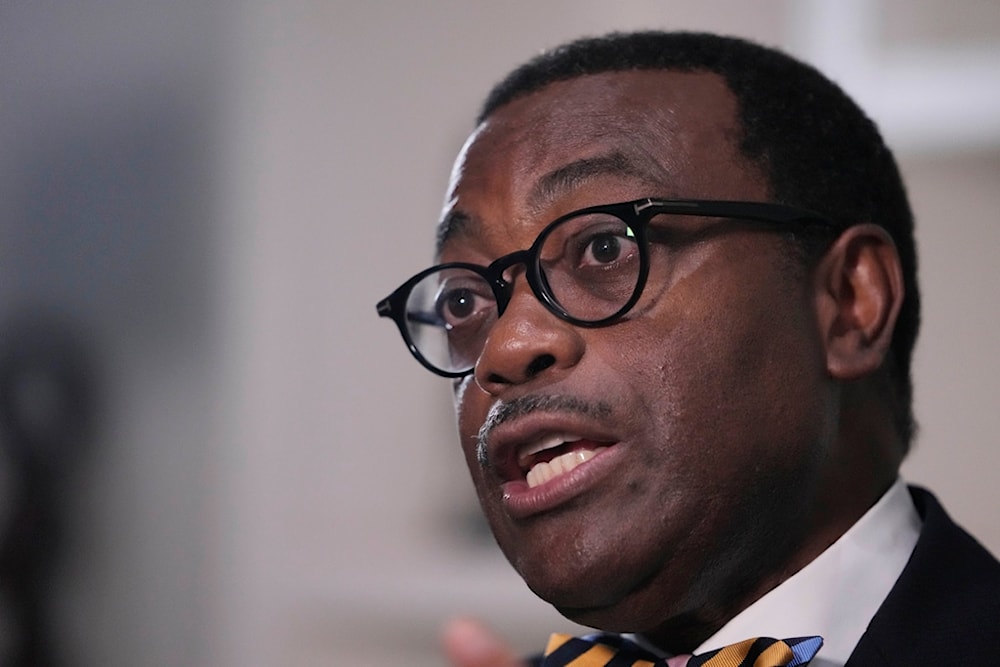Africa's agricultural sector to determine future of food: African Bank
The African Development Bank warns of the consequences of starvation, saying investment in Africa's agriculture would change the future and reality of food worldwide.
-

Akinwumi Adesina, President African Development Bank, speaks during an interview with The Associated Press in Lagos Nigeria, Tuesday , March. 5, 2024. (AP)
There are 783 million starved people. In Africa alone, 288 million people are suffering from starvation, which exceeds the population of Nigeria, Akinwumi Adesina, the president of the African Development Bank Group, said on Friday.
Adesina said starvation was reaching a higher number of people due to several issues resulting from climate change, international conflict, geopolitical tensions, global food price inflation, food export restrictions, and rising poverty and inequality.
"Africa has not fared any better in addressing these challenges, with 288 million people going hungry," he noted, adding that malnutrition and stunting among children, with the number of malnourished children in Africa on the rise, is of "particular concern."
Malnutrition and stunting severely affect cognitive ability, reduce learning and performance, and negatively impact long-term economic opportunities, Adesina emphasized.
The president further shared a recent revelation, embodied in the transformation of agriculture from a lifestyle to a business that generates profit while addressing the aforementioned challenges.
"Food is money and the food and agricultural market in Africa will reach $1 trillion by 2030. So, if agriculture is managed well, it will create enormous wealth, income, and jobs for Africa."
Africa has 65% of the world’s uncultivated arable land left to feed the world’s 9.5 billion people by 2050, he added, so what Africa does with agriculture will determine the future of food in the world.
"Agriculture is critical to diversifying economies, to transforming rural areas, where more than 70% of Africa’s population lives, most of them living in poverty," Adesina said, asserting that the way to eradicate poverty lies within transforming agriculture.
Sudan threatened by world’s deadliest famine in 40 years
Currently, Sudan is facing a potential famine that could be the worst the world has seen since Ethiopia's crisis 40 years ago, US officials have cautioned, as aid deliveries remain blocked by warring factions, while arms supplies to both sides continue unabated.
Sudan stands as the world's most severe humanitarian crisis, inching toward a disaster of historic magnitude with minimal media coverage and international concern. A UN humanitarian appeal for Sudan has received just 16% of the necessary funds.
"We need the world to wake up to the catastrophe happening before our very eyes," Linda Thomas-Greenfield, the US envoy to the United Nations.
Her remarks came as the city of el-Fasher, North Darfur's capital and a former humanitarian hub, endured its second month under siege by the paramilitary Rapid Support Forces (RSF).
The group has been battling the Sudanese Armed Forces (SAF) since April 2023, following a power struggle between SAF’s Abdel Fattah al-Burhan and RSF’s Mohammad Hamdan Dagalo, known as Hemedti.
The ongoing war has so far claimed 14,000 lives and displaced 10 million people.
Read more: ‘On brink of death’: WHO warns of Gaza children starvation

 3 Min Read
3 Min Read








